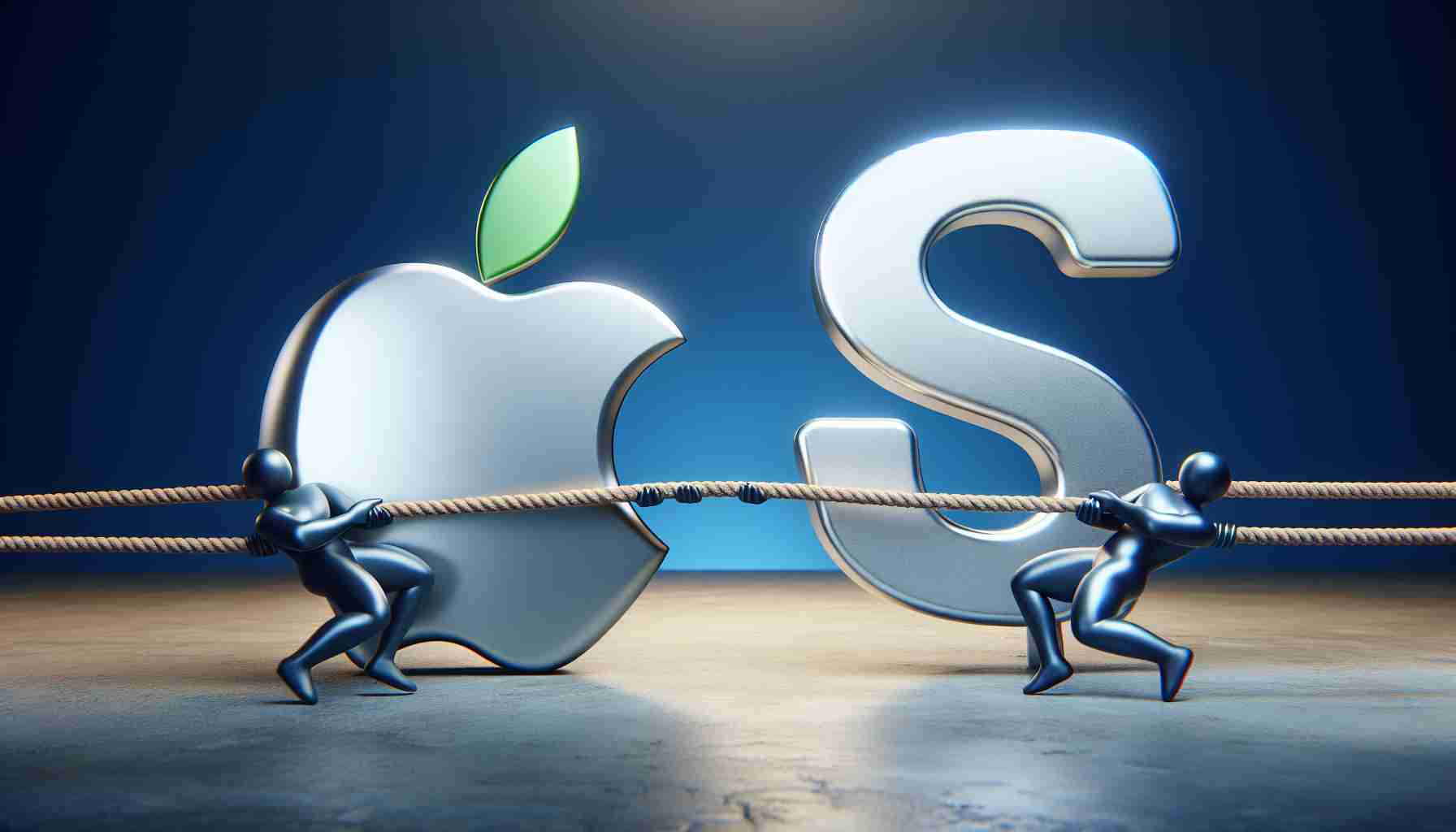In a dynamic shift within the smartphone industry, consumer satisfaction levels show an unprecedented tie between tech titans Apple and Samsung. Recent data from the American Customer Satisfaction Index reveals that both brands achieved an identical score of 82 out of 100, indicating a catch-up game where Samsung has matched Apple’s historically high satisfaction rates.
This striking development comes after Samsung made noteworthy advancements in customer approval, registering a 3% climb as opposed to the 1% progression observed for Apple. With a total of 12,414 consumers participating in the survey, findings point to a highly competitive sector where even marginal betterment can alter the pecking order.
Other noteworthy mentions include Google and Motorola, both securing the third spot with a score of 77, while the collective segment of remaining brands lags behind with a score of 72. Specifically highlighting the 5G smartphone battleground, Samsung edges out Apple, suggesting the crucial importance of next-generation connectivity in shaping customer contentment.
The comprehensive study by ACSI encapsulates the nuances of the smartphone realm, detailing consumer inclinations and the importance of device innovation and comprehensive service provision. Analytics from the survey underscore the fact that smartphone satisfaction is swayed by a multiplicity of factors such as technological prowess, design appeal, and user experience.
As we funnel our attention into the world of 5G technology, which offers immense potential for speed and connection stability, the survey demonstrates that brand success in this space is of significant interest to consumers. This interest is evidenced by Samsung’s slight lead over Apple in the highly scrutinized 5G segment.
The rise of Samsung echoes their sustained effort to diversify their product lineup and prioritize customer service. As the race for market dominance continues, it is clear that companies that remain attentive to consumer needs and technological advancements are those that will prevail in the years to come.
Key Questions and Answers:
1. What does the tie in consumer satisfaction levels between Apple and Samsung indicate?
The tie indicates that Samsung has been successful in closing the gap on Apple’s historically higher customer satisfaction rates. It highlights a highly competitive marketplace where customer perceptions can shift with incremental improvements in technology and service.
2. Why is the improvement in 5G capabilities significant?
The improvement in 5G capabilities is significant because it represents the future of mobile connectivity, offering faster speeds and more stable connections. Consumer satisfaction in the 5G space suggests that customers are paying close attention to how well brands are embracing this new technology.
3. What factors contribute to smartphone satisfaction?
Smartphone satisfaction is influenced by a variety of elements including technological innovation, design, user experience, brand reputation, customer service, and perceived value for money.
4. How does the competitive landscape in the smartphone industry affect companies?
Intense competition compels companies to continuously innovate and improve their products and services. Brands that do not adapt to consumer demands and emerging technologies may fall behind.
Key Challenges or Controversies:
– Maintaining innovation pace: As technology evolves rapidly, companies like Apple and Samsung must consistently innovate to meet consumer expectations and stay ahead of competitors.
– Price vs. performance: Balancing premium pricing with exceptional performance and features is a consistent struggle, especially as more affordable brands try to offer competitive specifications.
– Privacy and security: As smartphones become more advanced, they also accumulate more personal data, making privacy and security a critical concern for consumers.
Advantages and Disadvantages:
Advantages of high customer satisfaction:
– Brand loyalty: High satisfaction can lead to increased brand loyalty and repeat purchases.
– Positive word-of-mouth: Satisfied customers are more likely to recommend the brand to others.
– Competitive edge: High customer satisfaction can be a differentiator in a crowded market.
Disadvantages of failing to maintain satisfaction:
– Customer churn: Dissatisfied customers may switch to competitors.
– Brand damage: Negative customer experiences can harm a brand’s reputation.
– Financial impact: The resulting decrease in sales can adversely affect a company’s financial health.
You can visit the websites of the companies involved for more information:
– Apple
– Samsung
The source of the article is from the blog cheap-sound.com
